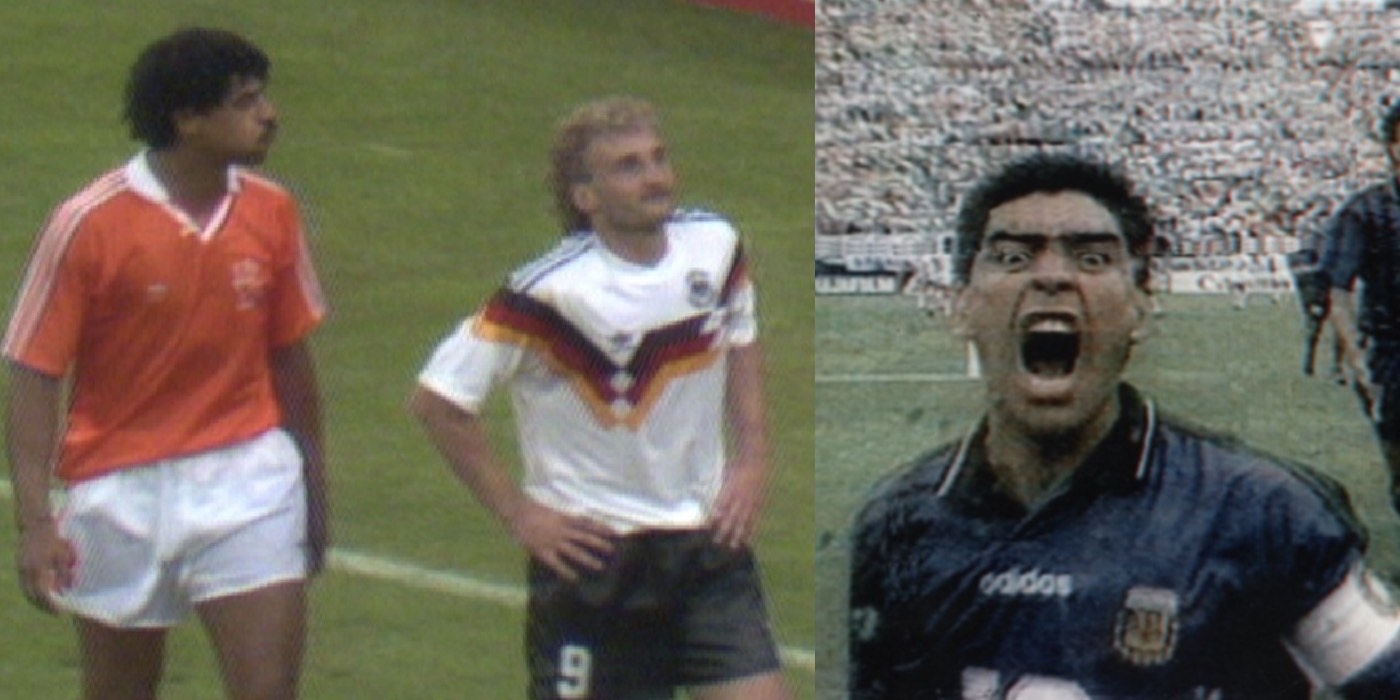A policeman assists in a goal for ultimate winners Uruguay
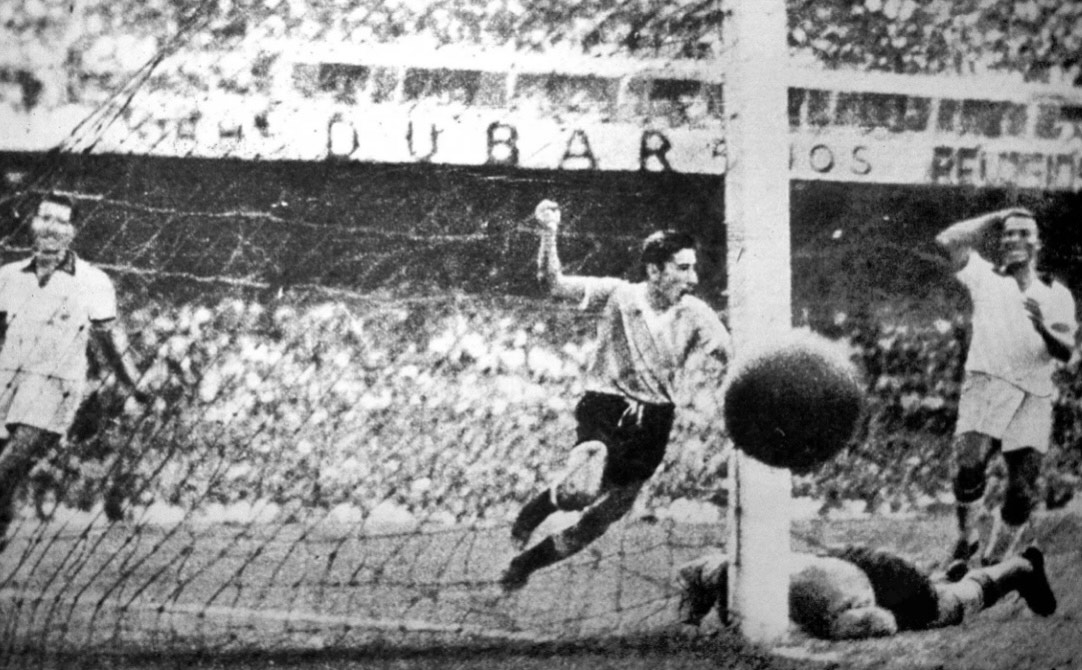
Even the first ever World Cup, held in Uruguay in 1930, wasn’t without controversy. During the semi-final between the hosts and Yugoslavia, a second goal was secured for Uruguay after a policeman kicked the ball back onto the pitch, ultimately winning the game 6–1. Uruguay then defeated Argentina in the final to win their first of two World Cups.
Italy supports Fascism at the 1938 World Cup
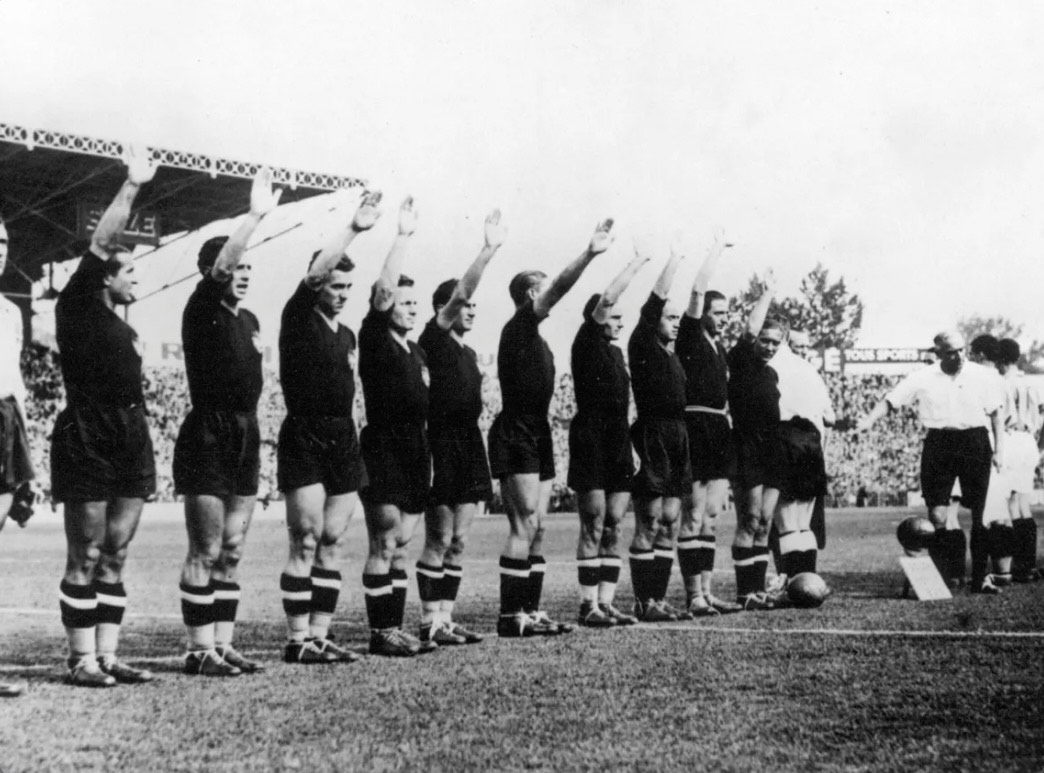
Yowzers. The World Cup doesn’t have a great human rights record, but Italy took the biscuit at the 1938 tournament. That year, the Italian national team pledged their support to Fascism and its current poster boy Benito Mussolini, even trading their trademark blue kit for a black one as a nod to the flag of the National Fascist Party. Italy would go on to win the tournament, but would fail miserably in the ensuing Second World War.
The Battle of Santiago
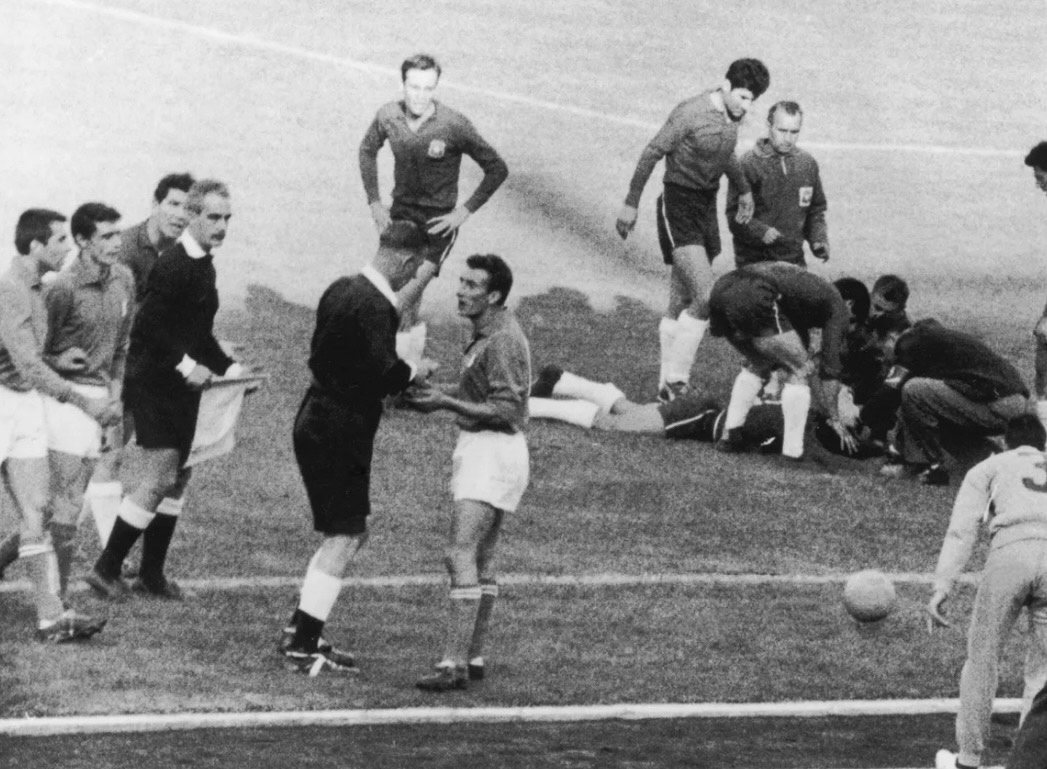
The first World Cup ‘battle’ came in Chile’s 1962 tournament. Having just recovered from a brutal earthquake measuring 9.5 degrees, an Italian journalist courted controversy when he called the country’s capital, Santiago, a dump. The Chileans did not take too kindly to the criticism. The ensuing match got so violent, police had to intervene three times. Chile won 2–0, but didn’t come away unscathed.
The World Cup is stolen, then found by a dog
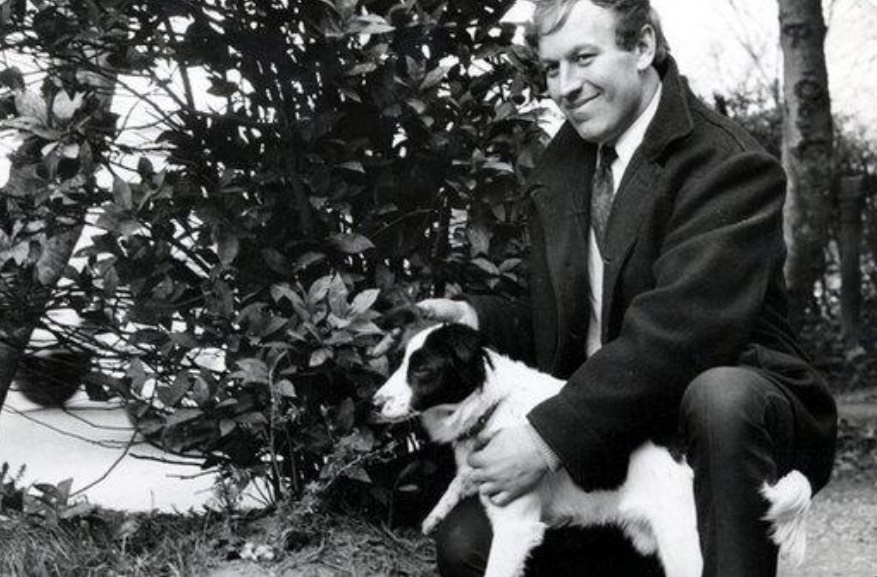
Four months prior to the 1966 World Cup in England, the Jules Rimet trophy was pinched from a public exhibition (with 24-hour security, no less) at Westminster Central Hall. The thieves demanded a ransom of £15,000, which the police at one point considered paying. That was until a dog called Pickles found the trophy discarded in a bush. England went on to win the tournament that year.
Geoff Hurt’s second goal(?) at the 1966 World Cup
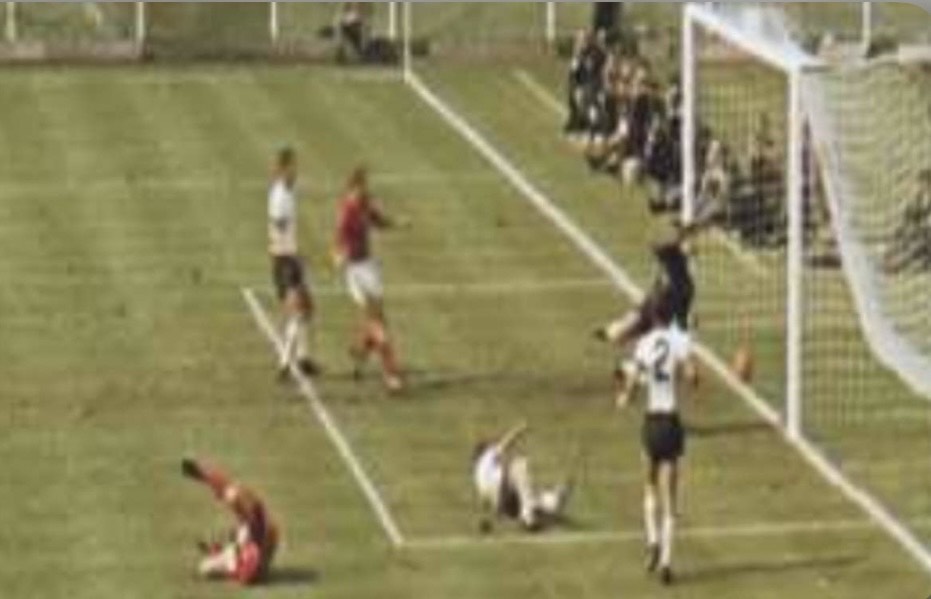
Did it go in or not? If you’re an England fan, your answer is probably yes. If you’re a Germany fan, it’s probably no. Thanks to the 1966 World Cup final taking place in a period where goal-line technology wasn’t even a concept let alone possibility, the jury is still out on this one. That being said, Geoff Hurst did go on to score a third goal for himself and a fourth for England, putting to bed any accusations the Germans had of being cheated.
Hosts Argentina win the 1978 World Cup amidst strong suspicion they cheated
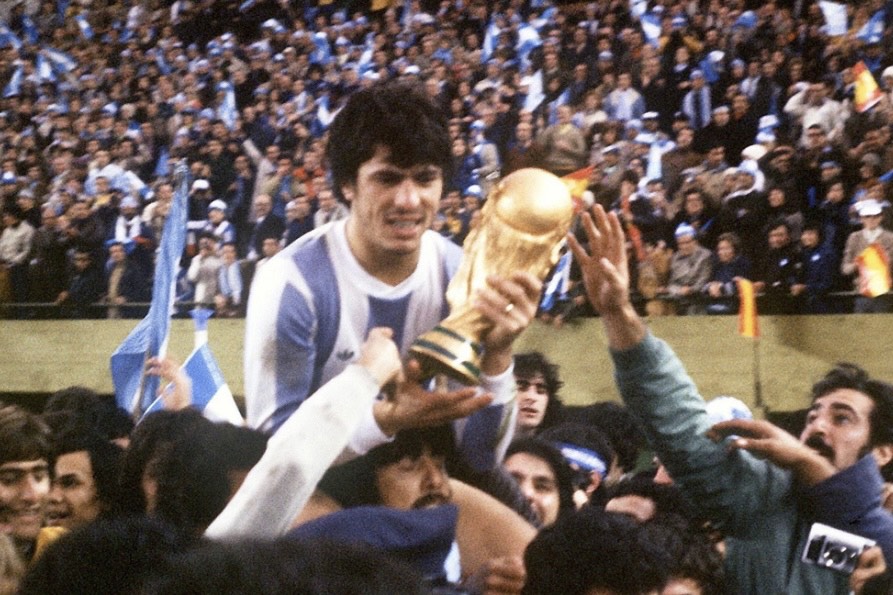
There are three certainties in life: death, taxes and Argentina cheating their way through a World Cup. In 1978, they served as controversial hosts of the tournament. The then Argentine dictator General Jorge Rafael Videla fancied cleaning up the country’s image of throwing dissidents out of helicopters into the open sea, and – funnily enough – the tournament went perfectly for the host nation. They ended up winning after beating Peru 6–0 in a semi-final they had to win by four goals. The Netherlands tried their best in the final, but you can’t dribble around corruption.
Sheikh Fahad Al-Ahmad Al-Sabah disallows France goal

The 1982 World Cup was Kuwait’s first and as-yet-only World Cup appearance, and it didn’t really go to plan. Drawing to Czechoslovakia, the competition debutants then took on a strong French side who were seeing them off 3–1 when a whistle was blown from the crowd. The Kuwaiti players drew to a halt only for the French to capitalise and score a fourth. Sheikh Fahad Al-Ahmad Al-Sabah, then-president of the Kuwait Football Association, stormed the pitch and threatened to pull his players off the pitch if the goal wasn’t disallowed. Amazingly, referee Miroslav Stupar decided to disallow the goal, much to the annoyance of the French.
West Germany and Austria play for a draw
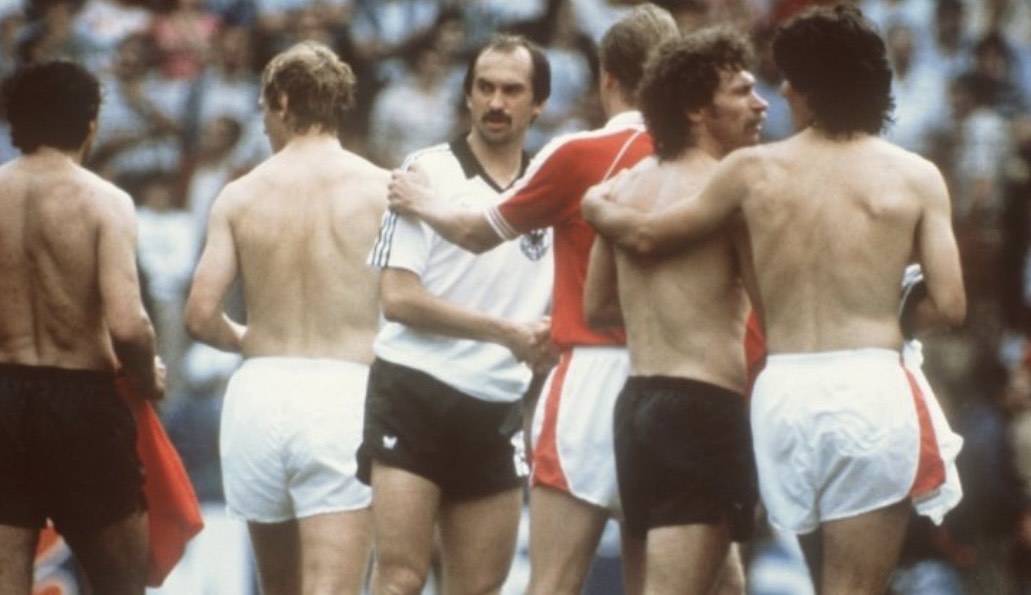
These days, all deciding group stage games at the World Cup are played simultaneously, to avoid any kind of corrupt shenanigans. But back in the day, namely the 1982 World Cup, things were different. In their final group game, West Germany needed to win to progress to the next stage. Austria, their opponents, didn’t, and would progress so long as Germany scored no more than two goals. In that event, Algeria could not progress. Wouldn’t you believe it, Germany scored one goal in the tenth minute and then spent the rest of the match botching any slight attempt on goal.
Clive Thomas denies Zico’s goal
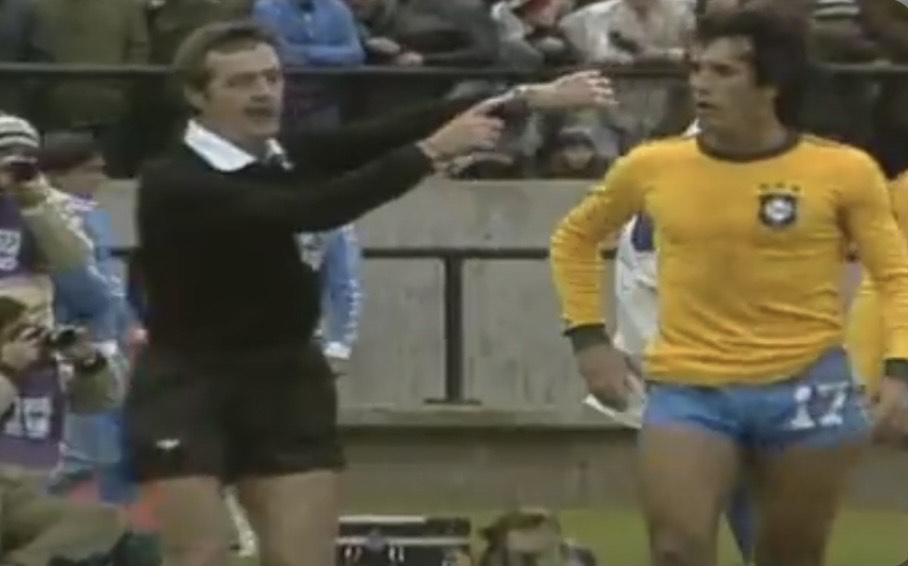
Some referees take liberties when it comes to extra time. Unlike other sports, which have a precise timer, the final whistle in football comes whenever the ref feels like it, though usually it is done so during a spell on non-attacking possession. During Brazil and Sweden’s 1978 World Cup clash, however, Welsh officiator Clive Thomas controversially blew the final whistle just as Brazil’s Zico headed the ball into Sweden’s net. The goal would have meant a 2–1 victory for them.
Schumacher knocks out Battiston

The semi-final contest between France and West Germany at the 1982 World Cup is remembered for many things. It is regarded as one of the greatest ties in the competition’s history for its amount of goals, the quality of play and its inevitable penalty shootout. But it also featured one of the most vicious tackles of all time, when German goalie Harald Schumacher leapt into the air and kneed France’s Patrick Battiston in the face, knocking him out cold. Schumacher got away without even a yellow card.
The Hand of God
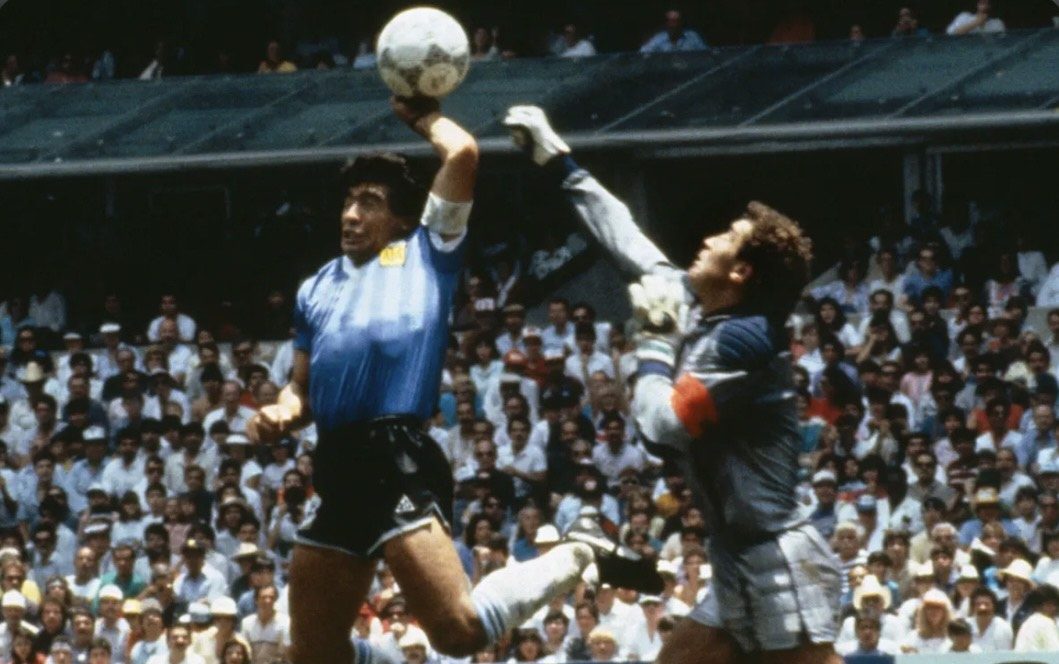
The quarter-final between England and Argentina at the 1986 World Cup in Mexico featured two of the most famous goals in footballing history, and they couldn’t have been more different. While the second was a clear-cut example of how effortlessly Diego Maradona could unglue an entire opposition, the first was an example of the lengths some players will go to ensure a win. Managing to beat a much taller Peter Shilton to a stray ball, Argentina’s golden boy used his left hand to punch it into the net, cementing his reputation as the sport’s greatest ever anti-hero.
Frank Rijkaard spits in Rudi Voller’s mullet
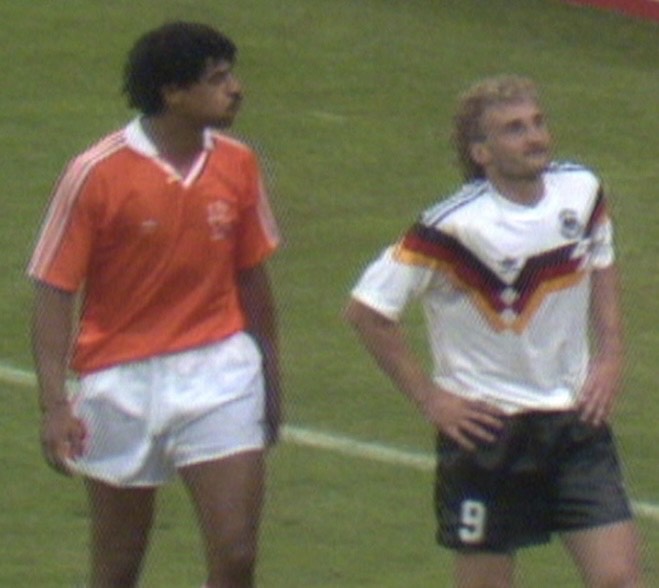
England may seem like Germany’s greatest rival, but really, it’s probably the Netherlands. From their feisty 1974 World Cup final to Ronald Koeman pretending to wipe his backside with a Germany shirt after beating them in Euro 1988, these two footballing nations have never seen eye to eye. Their most famous spat, quite literally, came in 1990 when the Netherlands’ Frank Rijkaard hacked a flyer right into the blond mullet of Germany’s Rudi Voller. Both players were sent off following an altercation.
Gary Lineker soils himself on the pitch
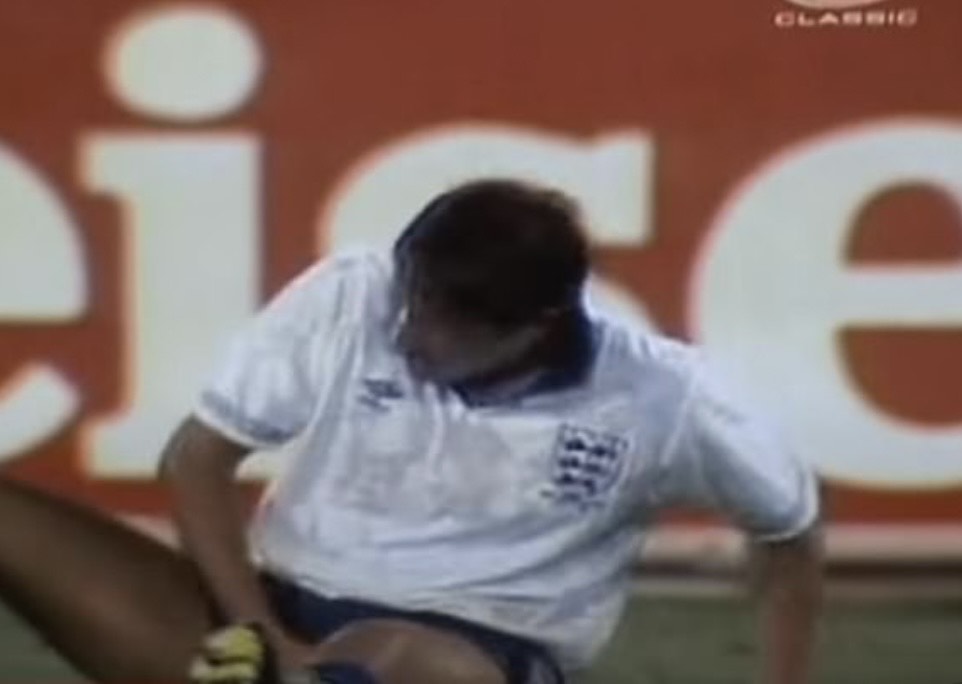
England vs the Republic of Ireland has always been a fiery fixture, but you can’t help but wonder if Gary Lineker took it too far with the mind games when he followed through during the match. “I was not very well, I was poorly at half-time but I carried on,” Lineker later said. “The ball went down the left-hand side, I did try to tackle someone, I stretched and then I relaxed myself. I was very fortunate it rained that night and I could do something about it. It was messy, it just came out, it happened. How much detail do you want?”
Maradona is suspended after a drug test
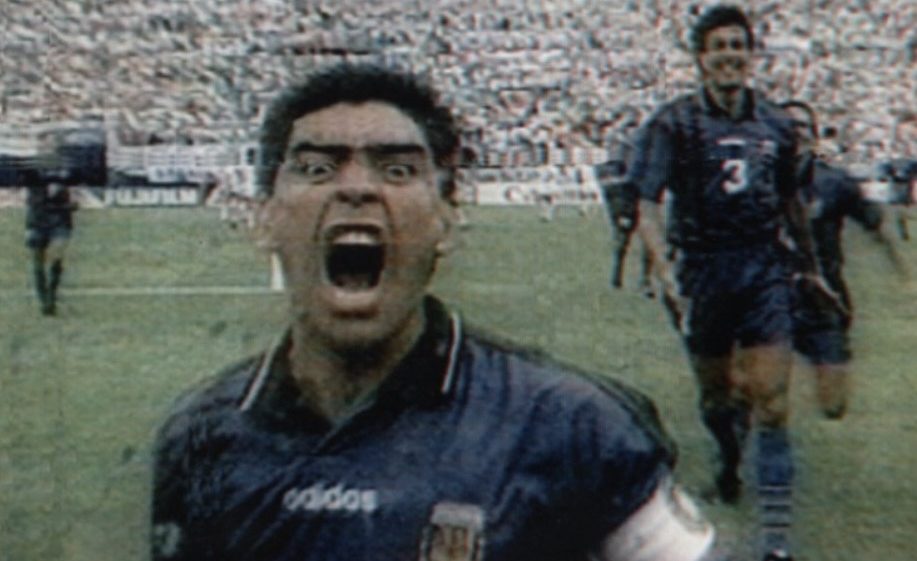
Maradona’s off-the-pitch reputation was already in tatters by 1994. Caught up in countless drug scandals, this was a man whose taste for self-destruction chipped away at all the glory he’d achieved in his early years. So the 1994 World Cup, Maradona’s last, was a prime opportunity to prove the haters wrong, and end things on the most positive note. And it did end positive, with Maradona being drug tested after playing just 173 minutes of the tournament. Ephedrine, a performance enhancer, was found in his system.
Andres Escobar was murdered following an own-goal
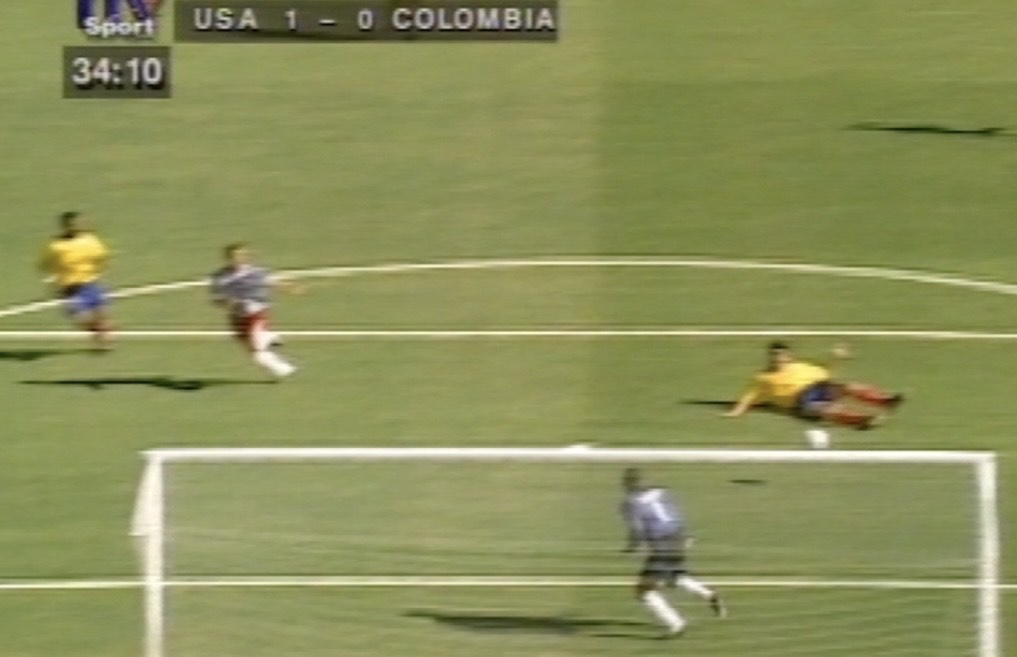
A promising team going into the 1994 World Cup, Colombia’s national football team were eliminated in the first round, partly thanks to a defeat to the USA in which Andres Escobar managed to score an own goal. After returning home, Escobar visited a Medellin nightclub where he was provoked by some men. Choosing to go home instead of retaliate, three men approached Escobar’s car and shot him six times. Humberto Castro Munoz, linked to a Colombian cartel, admitted Escobar’s murder, which was likely a punishment for his own goal. Around 120,000 people attended the defender’s funeral.
Roberto Baggio skies the ball
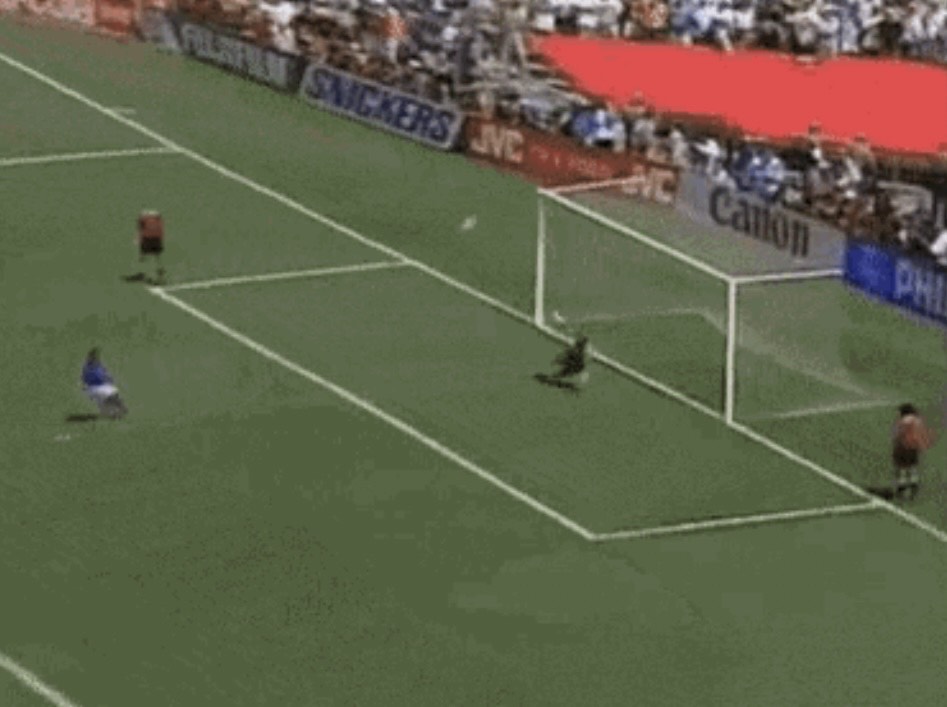
Stepping forward to take any penalty carries a load of pressure. But stepping forward to take a penalty you absolutely have to score so your country has a chance of winning the World Cup is a different kettle of fish. Italy’s Roberto Baggio found himself in this sticky situation back in the 1994 final against Brazil. He was their maestro, their steady hand. Surely he wouldn’t miss? Reader: he did. Rumour has it the ball ended up leaving the Earth’s atmosphere.
David Beckham’s red card against Argentina
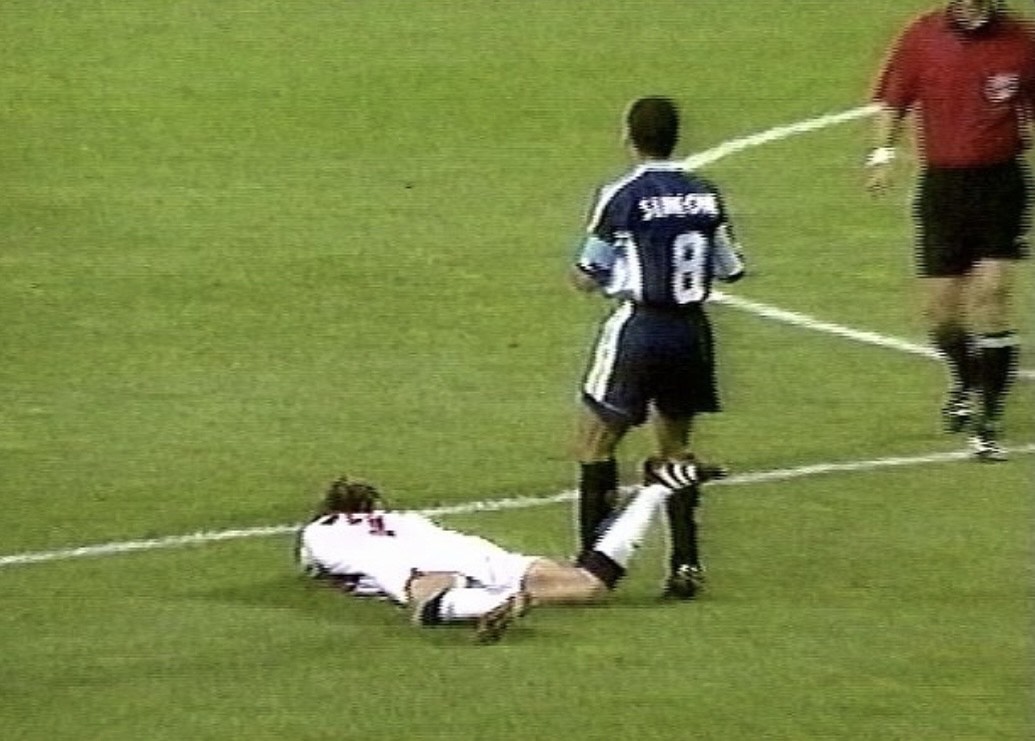
David Beckham was – and still is – seen as an exemplary English gentleman. Compared to the loudmouth, live-wired likes of Wayne Rooney and John Terry, Golden Balls was famously level-headed, the type of man to intervene in a fight rather than cause it. In 1998, however, the Argentinians got the better of Becks. Driven to the ground by Diego Simeone in a tense second half, Beckham flicked out a very flimsy right foot onto Simeone’s leg, causing untold pain. Beckham was sent off and subsequently lampooned in the English press.
Ronaldo suffers a seizure hours before the World Cup final
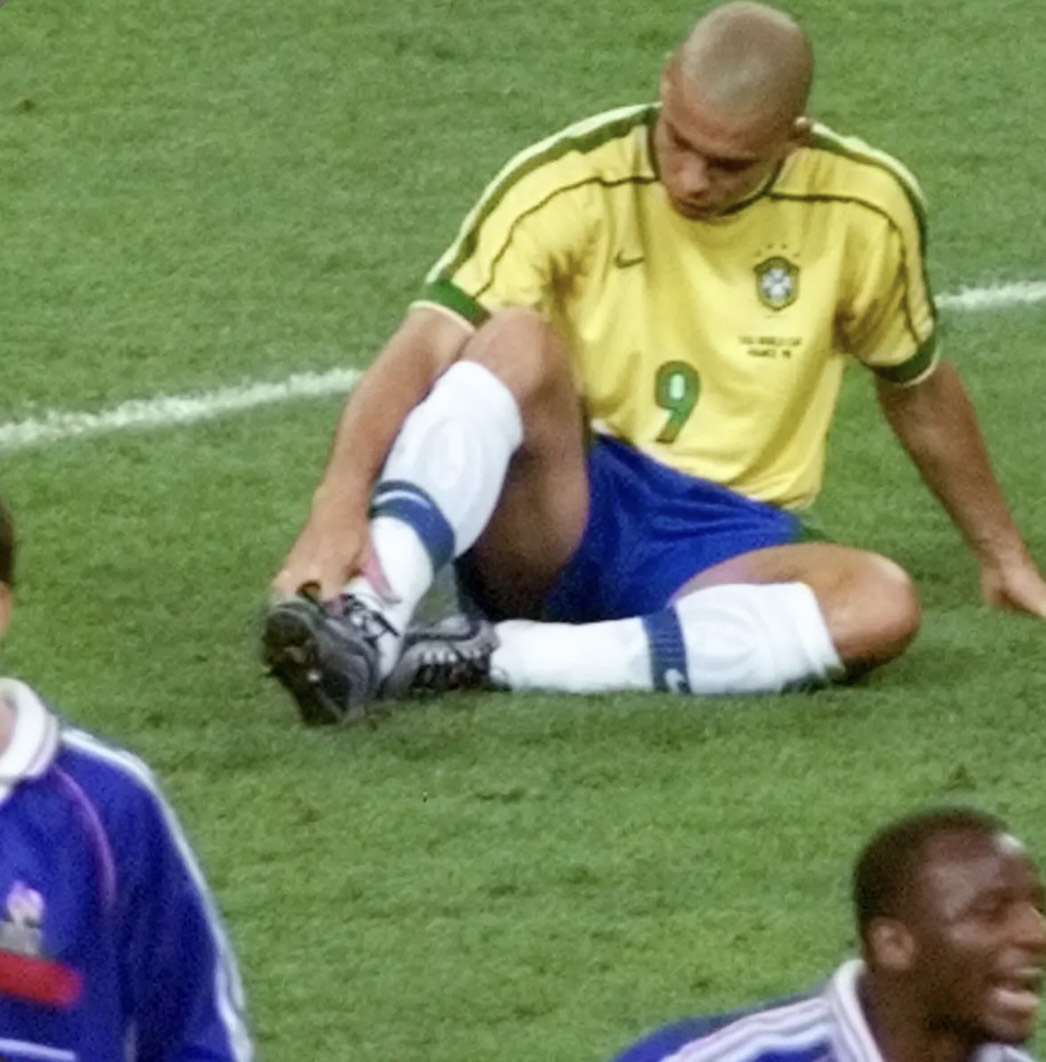
The 1998 World Cup was Ronaldo’s to lose. The tournament’s golden boy, he was nailed on to stick a few past that year’s hosts France in the final. Only things took a dark turn. “I decided to get some rest after lunch and the last thing I remember was going to bed,” Ronaldo later recalled. “After that, I had a convulsion. I was surrounded by players and the late Dr Lidio Toledo was there. I was told I wasn’t going to play, but all the essential medical exams didn’t show anything was abnormal – it was like nothing had happened.” Brazil eventually picked Ronaldo for the starting 11 but went on to lose 3-0.
South Korea beat Italy in shady circumstances
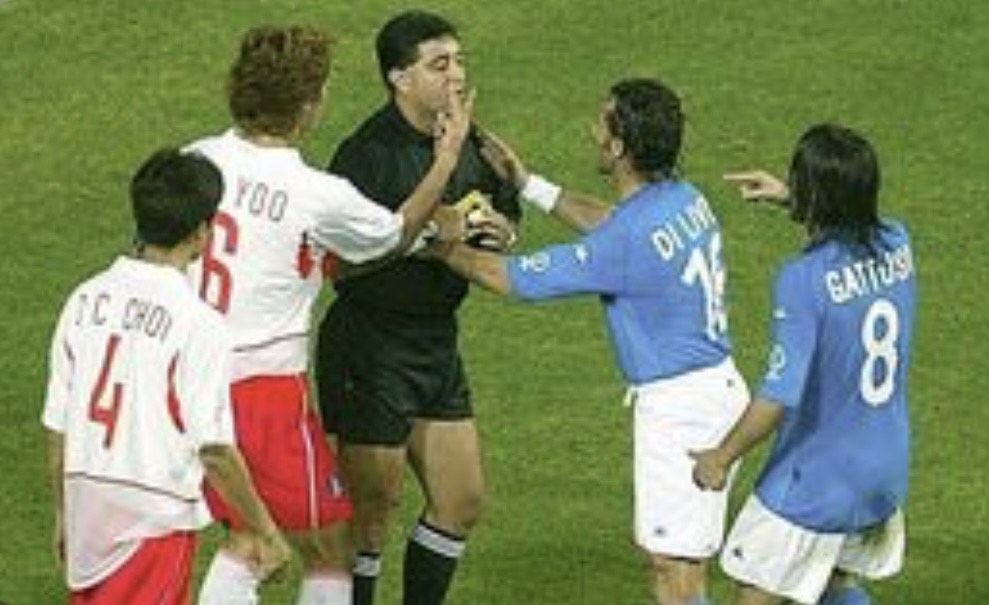
South Korea didn’t stand a cat’s chance in hell of making any mark in their joint World Cup with Japan in 2002. Sure enough, they managed to reach the semi-final after controversially knocking out Spain and Italy thanks to a series of red cards and false offsides mysteriously called in their favour. The South Korean team would make it to the last four, only to be knocked out by the well-oiled German machine.
Roy Keane is booted out of the Ireland squad
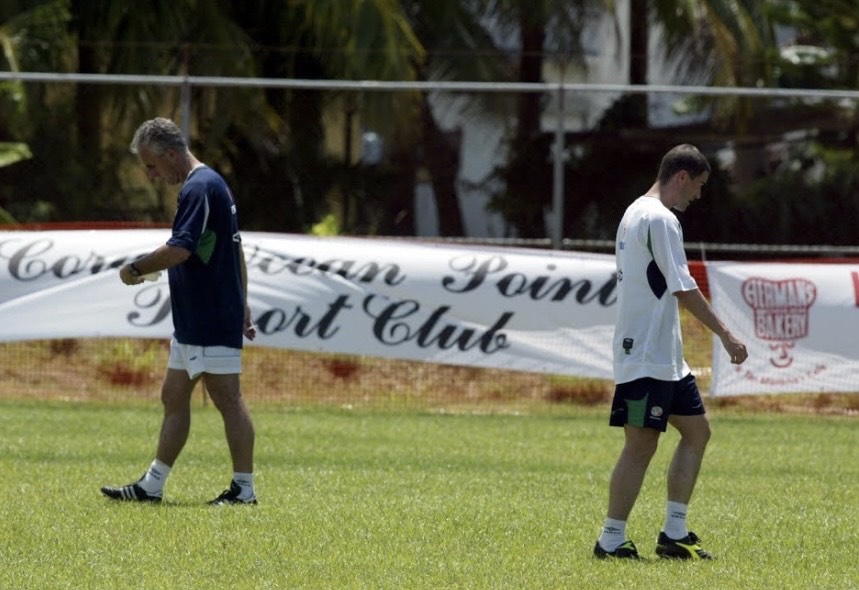
When Roy Keane travelled to Japan with the Republic of Ireland football team ahead of the 2002 World Cup, he wasn’t happy. On the plane over, the team had eaten cheese sandwiches. Now that, to Keane, a serial winner at Manchester United, was sloppy behaviour. Unbecoming of any team that wants to go out there and smash it. And then there was his relationship with manager Mick McCarthy. “You’re a f***ing w***er,” Keane told him. “I didn’t rate you as a player, I don’t rate you as a manager and I don’t rate you as a person. You’re a f***ing w***er and you can stick your World Cup up your a**e.” Keane was ejected from the squad and sent home, missing out on what would have been his only World Cup.
DaMarcus Beasley relieves himself during a game
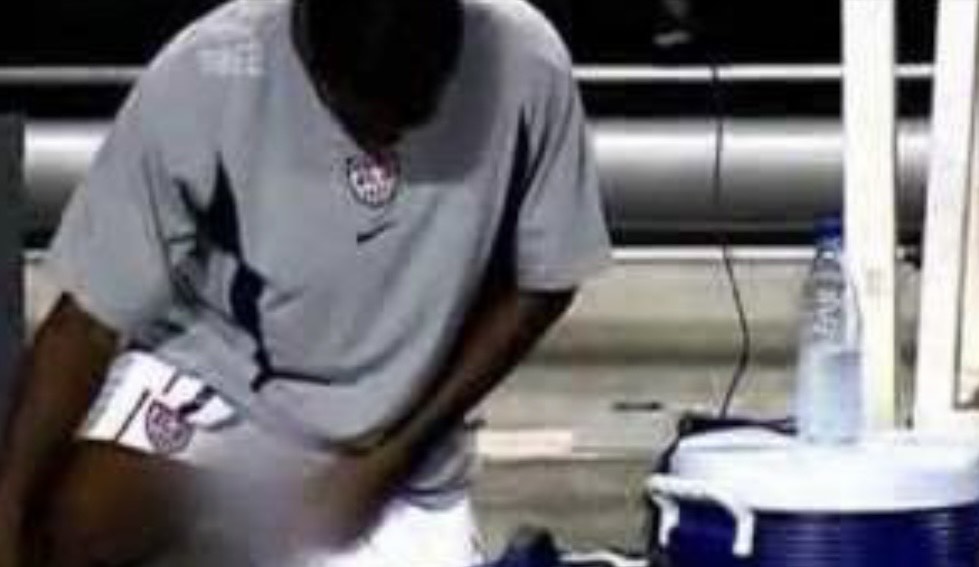
Team USA’s DaMarcus Beasley will forever be remembered in World Cup history, unfortunately for the most absurd reason ever. Instead of causing a stir through a series of goals, Beasley chose to attract the global audience by having what he thought was a discreet pee at the side of the pitch during the US second round fixture against Mexico in 2002. But who are we to judge? Imagine urine the same situation. Are you just gonna hold it in?
Rivaldo survives a Certain Fate
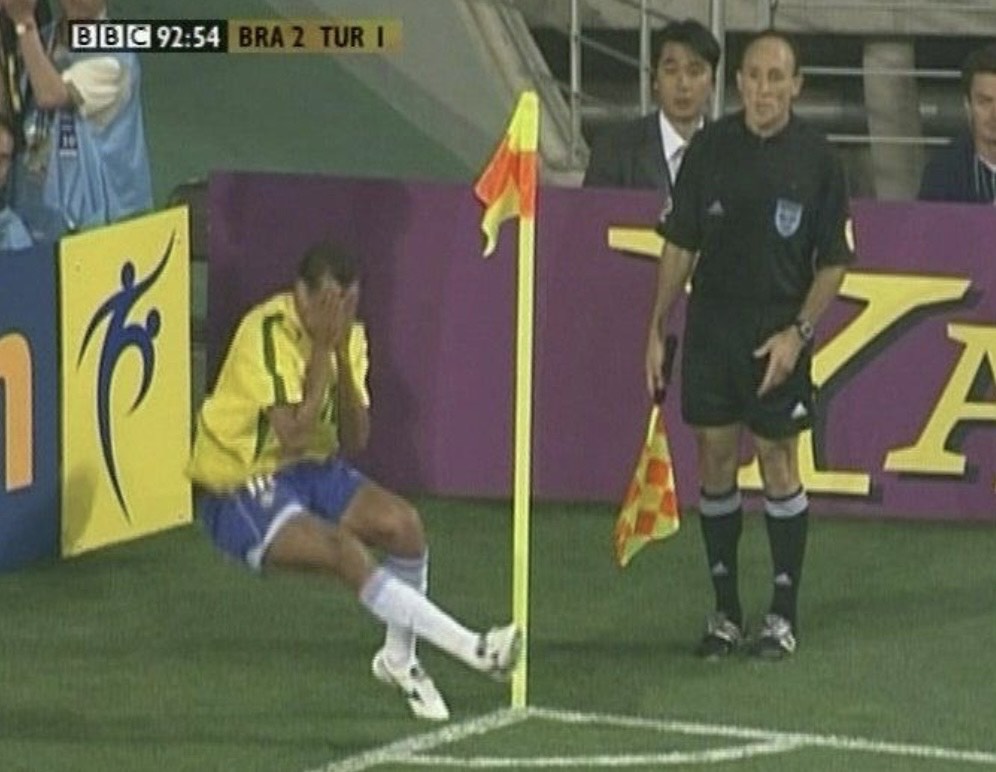
Rivaldo may have won the 2002 World Cup with Brazil but it is arguably overshadowed by his ludicrous dive in the team’s group game against Turkey. Time-wasting over a corner, Turkey’s Hakan Unsal kicked the ball at Rivaldo’s knee. Rivaldo then clutched his face in agony and collapsed to the ground. His theatrics got Unsal sent off. Brazil went on to win 2–1 following an 87th minute penalty scored by the diver himself.
Frank Lampard is denied an obvious goal
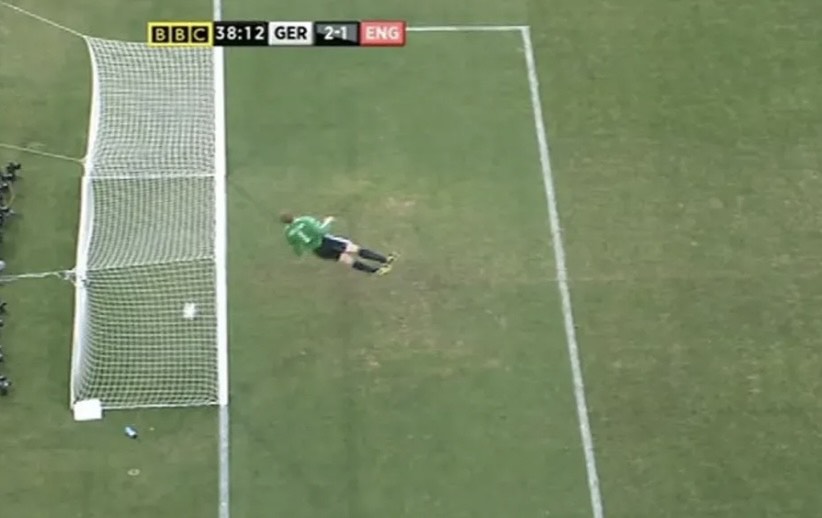
The England squad was not in good shape in 2010. They were terrible, in fact. But there’s a part of every England fan that wonders what might have been had a would-be Frank Lampard equaliser – denied in the round of 16 game versus Germany, at South Africa’s World Cup – counted. Following the controversial decision, which triggered FIFA to introduce goal line technology, Germany went on to win the game 4-1, further emboldening the rivalry between the two nations.
Luis Suarez sacrifices himself against Ghana
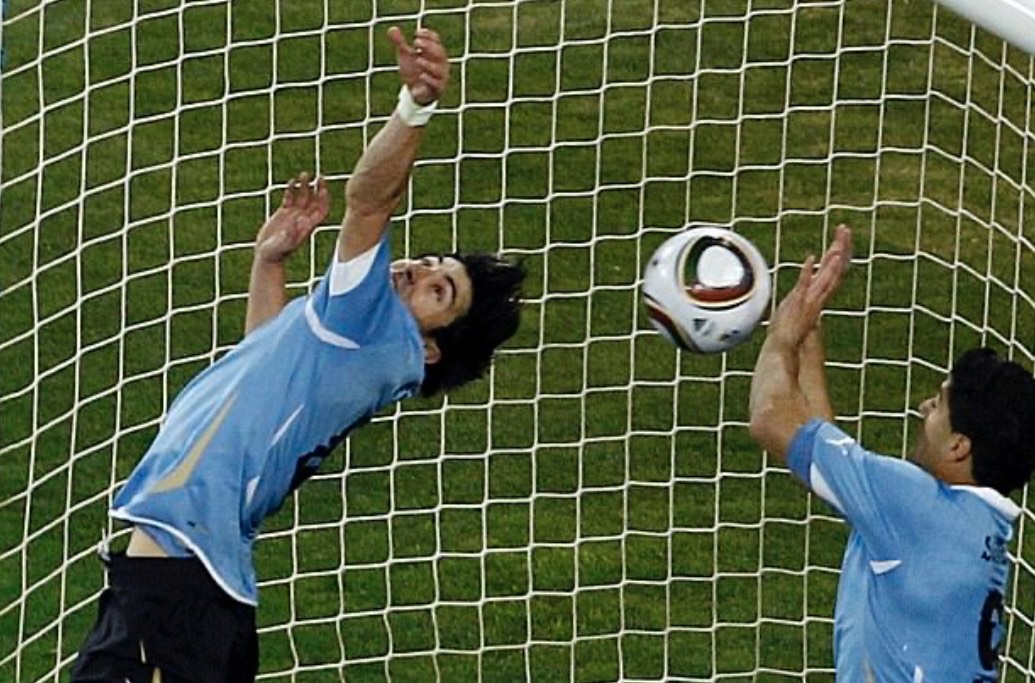
Ghana were the final African beacon of hope in the South Africa 2010 World Cup. In the quarter final, they faced a formidable Uruguay, a team that included a fresh-faced Luis Suarez. In injury time, Suarez stopped a certain goalbound Ghanaian header with his hands, gifting Asamoah Gyan a last-second penalty and a chance to progress to the semi final. He clipped it on to the crossbar and over the goal. Uruguay later prevailed in a penalty shootout.
Josip Simunic receives three yellow cards
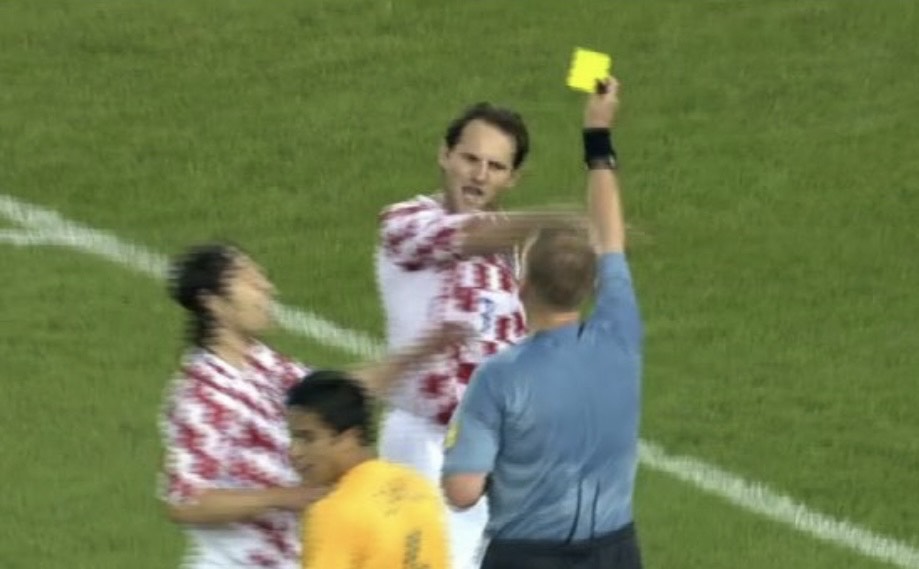
Graham Poll wasn’t exactly on the ball when he officiated a group stage match between Croatia and Australia at the 2006 World Cup. In the 61st minute, Croatian player Josip Simunic received a yellow card for tackling Harry Kewell. In the 90th, he received a second yellow for another foul but Poll failed to show him the subsequent red card. It was only after the final whistle that Poll sent Simunic off following a push.
Battle of Nuremberg
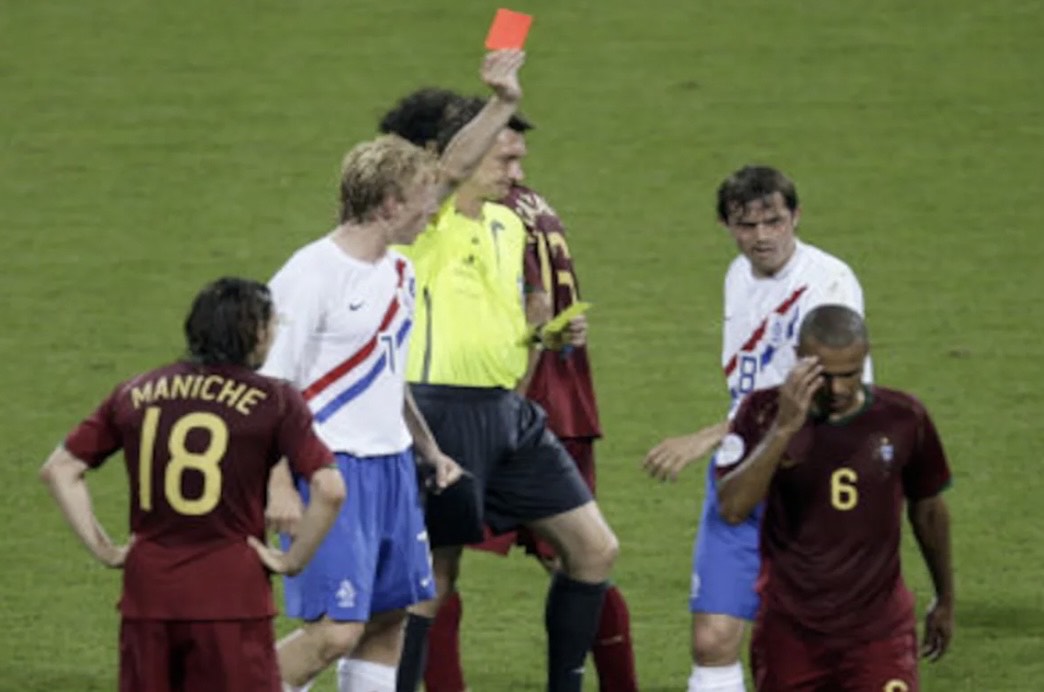
There was no previous beef between Portugal and the Netherlands when they met at the 2006 World Cup. However, for whatever reason, tensions ran high during what became known as the Battle of Nuremberg. Valentin Ivanov, the Russian referee, ended up showing four red cards and 16 yellow cards throughout the epic clash, setting a record for any FIFA tournament.
Italy progress through Grosso’s dive

Australia, or the Socceroos, have a shoddy reputation at international tournaments, having never come close to winning a major trophy. But in 2006, there was a hype around the team thanks to the likes of Tim Cahill, Harry Kewell and Mark Viduka being in the squad. In their round of 16 game, they met an Italy team that would go the whole distance. Australia would be knocked out when Italian Fabio Grosso tragically fell over a defender’s prostate body, gifting his country a last minute penalty that Francesco Totti promptly fired in.
Zidane headbutts Materazzi

Zinedine Zidane was on the cusp of footballing immortality when he walked out onto the pitch for the 2006 World Cup final in Berlin. Having already won a World Cup in 1998, winning a record second would conclude his career (ending that night whatever the result) in the greatest way possible. Instead, it ended in the worst way possible after he jokingly offered Italian defender Marco Materazzi his shirt when he was tugging on it. Materazzi replied, “I prefer the w**re that is your sister,” and Zidane ended up seeing red in two senses upon headbutting the Italian.
Joachim Low picks his nose
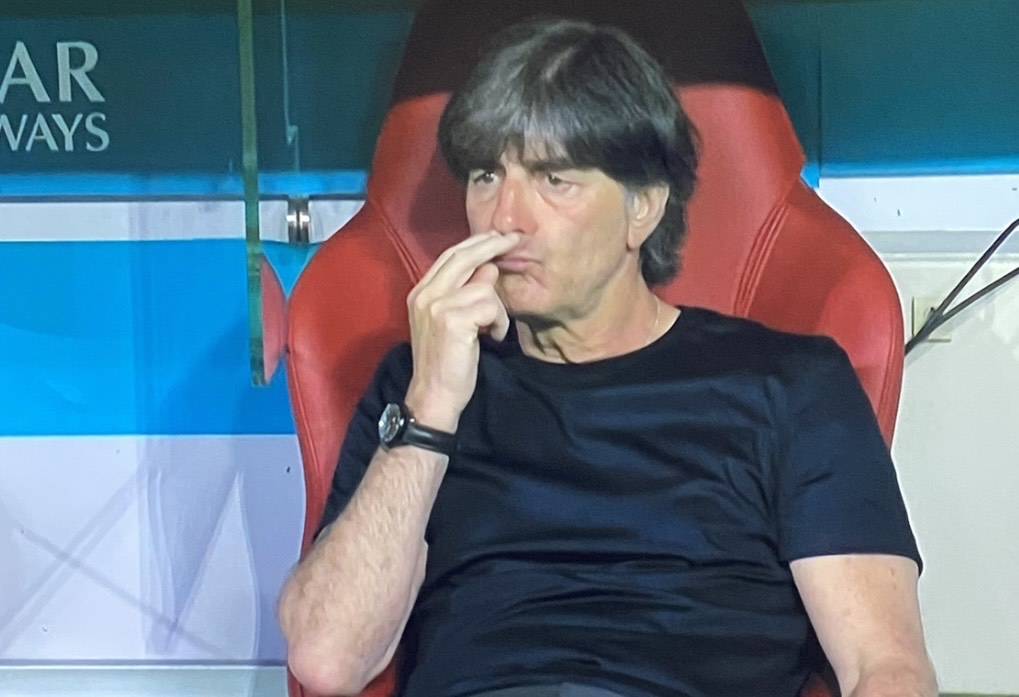
Joachim Low’s nose-picking habits, unfortunately, run across two World Cups. Beginning in 2010, the Germany manager went viral for getting a bit too intimate with his nostrils on the bench. Four years later in Brazil, Low was seen picking his nose before offering his hand to Cristiano Ronaldo as he left the pitch. At Euro 2016, Low was spotted fiddling again, only this time with his hands on his balls. “It was adrenaline and concentration. It happened. I’m sorry,” he later claimed.
Luis Suarez bites Chiellini
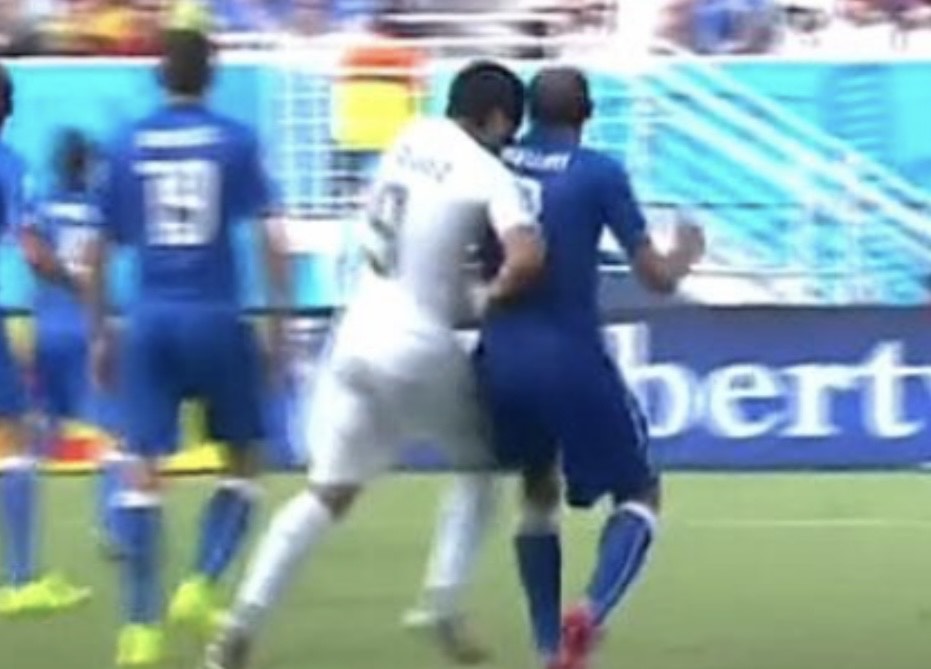
Before heading out to Brazil for the 2014 World Cup, Luis Suarez made his intentions clear. “I want to change the bad boy image,” he said. “I don’t think I am at all how I’ve been portrayed.” Proving his interest in turning a leaf, Suarez would go on to bite Italian defender Giorgio Chiellini on the shoulder during Uruguay’s final group stage fixture. He would be banned from nine international fixtures and all football for four months.
